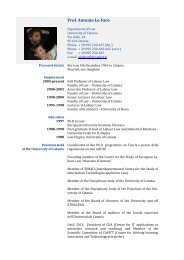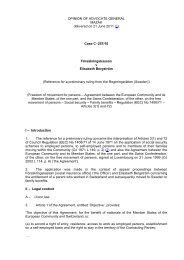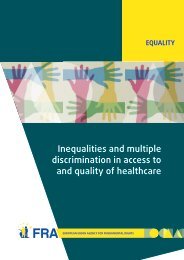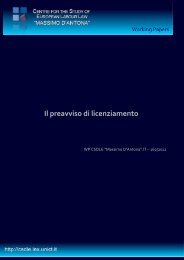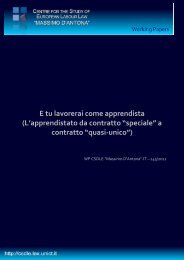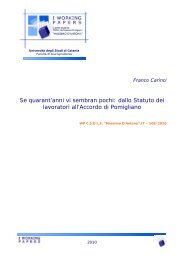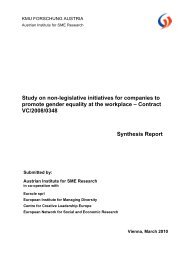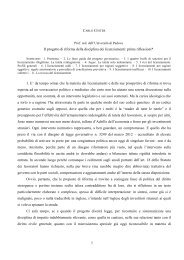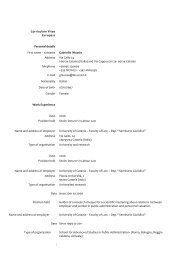Full text - European Trade Union Institute (ETUI)
Full text - European Trade Union Institute (ETUI)
Full text - European Trade Union Institute (ETUI)
Create successful ePaper yourself
Turn your PDF publications into a flip-book with our unique Google optimized e-Paper software.
Temporary agency work in the <strong>European</strong> <strong>Union</strong><br />
The concept of ‘general interest’<br />
The Directive provides that restrictions and prohibitions have to be justified<br />
on the ground of general interest. The concept of general interest is always<br />
difficult to define, no clear definition is provided to give national judges and<br />
the CJEU a broad margin of appreciation.<br />
For example, there is no agreement on a clear definition in Belgium, whereby<br />
trade unions put the emphasis on health and safety aspects. In current Polish<br />
legislation, no mention is made of this issue. According to CYIUB/KNSB<br />
(Bulgaria), the notion of ‘public interest’ was not well considered and ensured<br />
by the envisaged clauses in the implementation law (Amendment of Labour<br />
Code section 8, Article 107p to Article 107ц (State Official Journal, No. 7,<br />
2012). Finally, in Slovenia, general interest has been understood as relating to<br />
restrictions concerning workers on strike, safety and health issues and time<br />
limitations.<br />
The concept of ‘basic working conditions’ (except pay)<br />
The Directive provides that the concept of basic working conditions covers<br />
duration of working time, overtime, break, rest period, night work, holidays<br />
and public holidays (and pay). The following paragraphs give a few examples<br />
of what have been done in the Member States.<br />
Working time is often included in basic working conditions, such as in Ireland,<br />
Belgium, France, Portugal, Italy, Spain and the United Kingdom. Rest<br />
periods (Spain, Ireland, France and the United Kingdom), breaks (Spain, Ireland,<br />
Italy and the United Kingdom), night work (Spain, Ireland, Belgium,<br />
France, Italy and the United Kingdom) annual leave and public holidays<br />
(Spain, Ireland, Belgium, France, Italy and the United Kingdom) often belong<br />
to the category of basic working conditions. Sunday work and part-time work<br />
are rarely mentioned (Belgium). It is the same regarding health and safety<br />
(France and Portugal), child and youth work (France and Belgium), overtime<br />
(Spain, Ireland, Italy and the United Kingdom) or part-time work (Belgium).<br />
Italian legislation also recalls that protection of pregnancy and gender equality<br />
are included (Art. 2 (2) c of the new Decree of 2012). In Poland, all employment<br />
conditions are covered. It is worth mentioning that comparison is<br />
made difficult because of differences in the definitions of the concepts used.<br />
Concerning the Austrian transposition measures, the issue of basic employment<br />
and working conditions stipulated by “other binding general provisions”<br />
is of concern in particular in respect of so-called “free work council agreements”,<br />
(Work council agreements that are concluded on issues not explicitly<br />
mentioned by law (Works Constitution Act - Arbeitsverfassungsgesetz Arb-<br />
VG). In such a case these issues are identified as part of all working contracts<br />
concerned, that might fall into the scope of the Directive, but which will not<br />
be covered by the Austrian Act. In Bulgaria, basic working conditions’ are<br />
defined as “work and employment conditions, set forth by laws, normative<br />
acts for implementation of laws, administrative acts, collective labour agree-<br />
WP 2012.13 29




